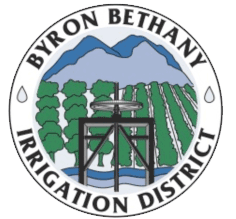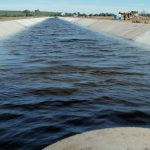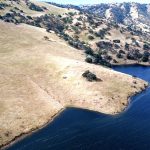Sacramento, CA (August 3, 2021) – In a rash action deeply harmful to California’s agricultural community, the State Water Board adopted potentially unlawful emergency regulations based on incomplete, and in some instances, inaccurate information, exposing the agricultural community to billions of dollars in lost economic productivity.
The emergency regulations can support curtailments that prematurely cut off more than 10,000 water right holders in the Delta and San Joaquin watersheds, nearly all of them devoted to providing reliable water for one of our state’s most essential industries: agriculture.
“The State Water Board is attempting to wrest regulatory control over pre-1914 water rights, just as it did during the last drought,” said Russell Kagehiro, Board President of the Byron-Bethany Irrigation District (BBID). “By targeting agriculture in the Delta region, the State Water Board is unfairly imposing an enormous burden on those who will sustain the greatest socioeconomic damage, by unfairly threatening thousands of jobs and valuable crops.”
BBID, a senior water rights holder south of the Delta, was one of dozens of senior water rights holders curtailed in 2015. BBID – facing a $5-plus million fine – prevailed before the State Water Board and proved that the methodology used by the State Water Board was flawed.
Just six years later, the State Water Board is again unfairly targeting California agriculture, by threatening to curtail agricultural water use in the Delta, and imperiling thousands of jobs and valuable crops, while urban conservation remains voluntary.
“The Board says its emergency regulations are based on ‘the best information available,’” said BBID General Manager Rick Gilmore. “However, the Board’s methodology for determining water availability is built upon a series of flawed assumptions and has been shown by our legal and technical team to be inaccurate.”
Though the methodology has been revised since the State Water Board ruled in favor of BBID in 2016, it still contains fatal flaws. It mistakenly assumes native water resides in the Delta no more than one month, when preliminary modeling shows it resides 2-3 months. It does not account for return flows available to Delta diverters. Its demand data is incomplete, and its demand calculations are duplicative.
“BBID urges the State Water Board to abandon this coercive path and work with growers and irrigation districts,” Kagehiro said. “Shared sacrifice and a more complete understanding of water availability will reduce the severe impacts these regulations will undoubtedly have in some of California’s most vulnerable communities.
“Should the State Water Board continue down this road,” Kagehiro continued, “we will have no choice but to defend our water rights, which are the foundation for reliable water deliveries for multi-generational farming families, M&I customers, and the sole source of supply for the growing community of Mountain House.”


